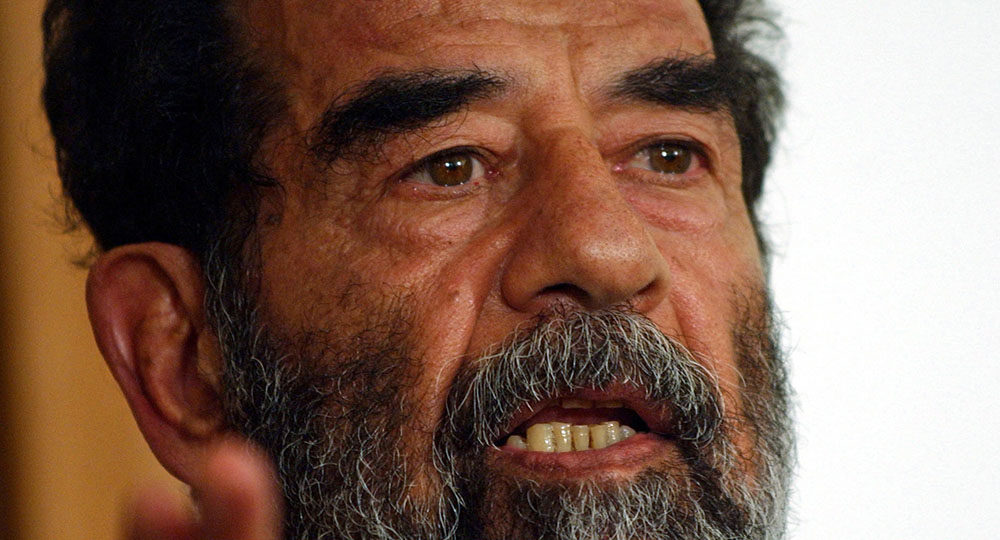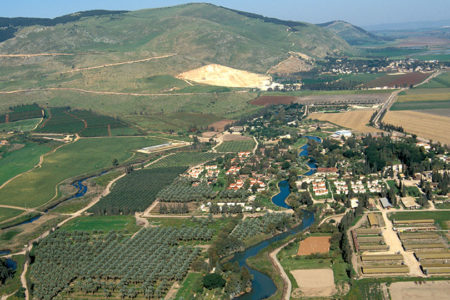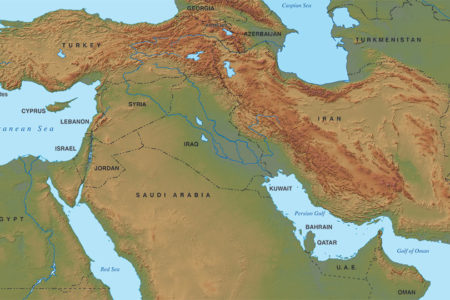Saddam’s WMDs…From Someone Who Knows
In Iraq he was known as General Georges, former air vice marshal in Saddam Hussein’s military and one of Saddam’s top advisors. His name is Georges Sada, and he is a Christian. His book Saddam’s Secrets, published in 2006, divulges stunning information on Iraq’s enormous stash of weapons of mass destruction (WMDs, now in Syria), as well as Saddam’s plan in 1990 to attack Israel with three types of chemical weapons: the nerve gas Tabun plus Sarin 1 and Sarin 2.
Here are excerpts from this outstanding book.
“Iraqi engineers were very good at manufacturing chemical weapons systems for artillery shells, rockets, missiles, and other ordnance. By August 2002, Saddam was convinced the Americans were coming; but even then the chemical and mechanical engineers continued building and developing all these systems, on into 2003 and after the American invasion began.
“As a former general officer who not only saw these weapons but witnessed them being used…I know the names of some of those who were involved in smuggling WMDs out of Iraq in 2002 and 2003. I know the names of officers of the front company, SES, who received the weapons from Saddam. I know how and when they were transported and shipped out of Iraq. And I know how many aircraft were actually used and what types of planes they were.
“Much to his [Saddam’s] good fortune, a natural disaster in neighboring Syria provided the perfect cover story for moving a large number of those things out of the country.
“Iraq did have weapons of mass destruction both before and after 1991, and I can assure you they were used. They were used on our own people. They were used in artillery shells, cannons, and by aerial dispersion of toxins by both helicopters and fixed-wing aircraft against Saddam’s enemies.
“How Saddam hid these weapons and equipment prior to and during the second Gulf War involves another brilliant bit of deception. Saddam had ordered our weapons teams to hide the WMDs in places no military commander or United Nations weapons inspector would expect to find them. So they hid them in schools, private homes, banks, business offices, and even on trucks that were kept constantly moving back and forth from one end of the country to the other. And then fate stepped in.
“On June 4, 2002, a three-mile-long irrigation dam, which had been drawing water from the Orontes River in the north-western district of Zeyzoun, Syria, collapsed, inundating three small villages and destroying scores of homes. When Syrian President Bashar al-Assad asked for help from Jordan and Iraq, Saddam knew what he would do. For him, the disaster in Syria was a gift, and there, posing as shipments of supplies and equipment sent from Iraq to aid the relief effort, were Iraq’s WMDs.
“Who would suspect commercial airliners of carrying deadly toxins and contraband technology out of the country? So the planes were reconfigured. All the passenger seats, galleys and toilets, storage compartments, and other related equipment that would be needed for civilian passengers were removed, and new flooring was installed. The airliners were then used for transporting hundreds of tons of chemicals, armaments, and other paraphernalia into Syria under the cover of a mission of mercy to help a stricken nation.
“Eventually there were fifty-six sorties. Commercial 747s and 727s moved these things out of the country. He arranged for most of these shipments to be taken to Syria and handed over to ordnance specialists there who promised to hold everything for as long as necessary.”
Sada is director of the Iraqi Institute for Peace and also serves as a spokesman for the newly elected prime minister of Iraq. Although he sometimes was the object of Saddam’s wrath, he said he survived because Saddam “trusted me. He couldn’t trust most of his generals to tell him the truth because of their fear of him. So he would often say to me, ‘At least Georges will tell me the truth.’”
From Saddam’s Secrets: How an Iraqi General Defied and Survived Saddam Hussein by Georges Sada. Published in 2006 by Integrity Publishers, a division of Thomas Nelson, Inc., P.O. Box 141000, Nashville, TN 37214. Used by permission.







